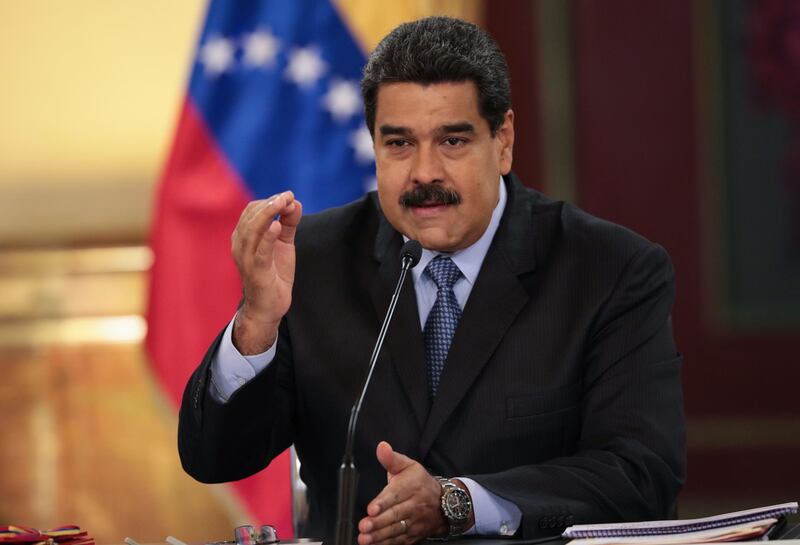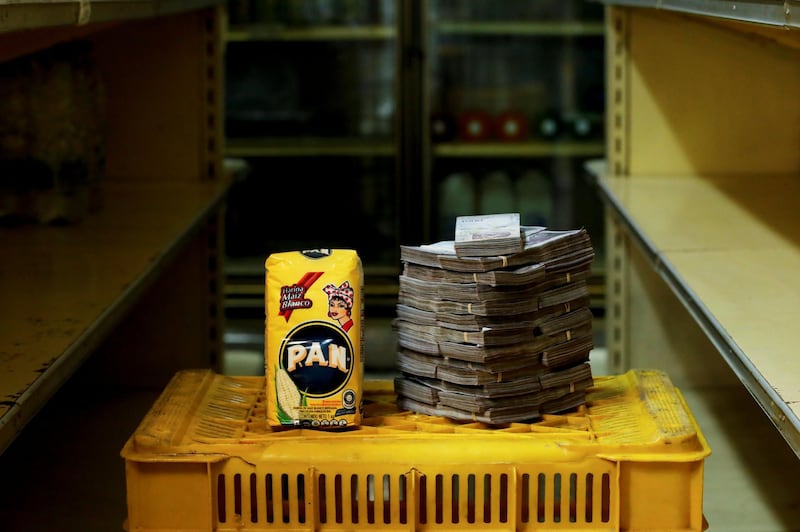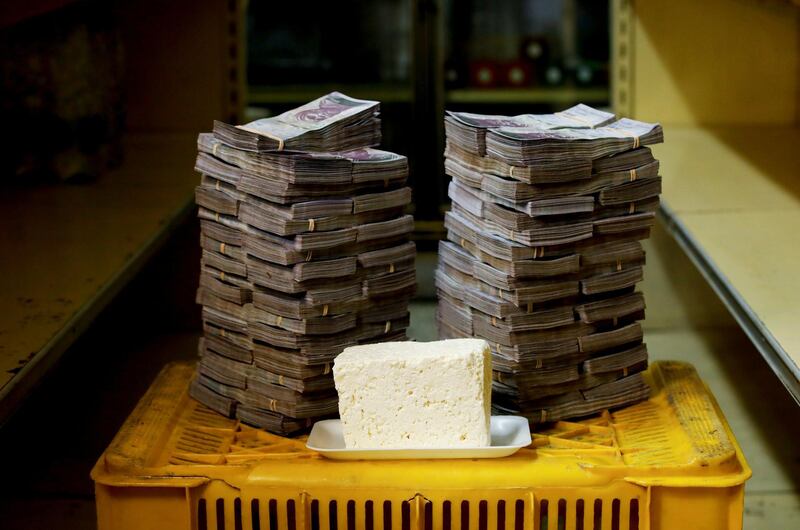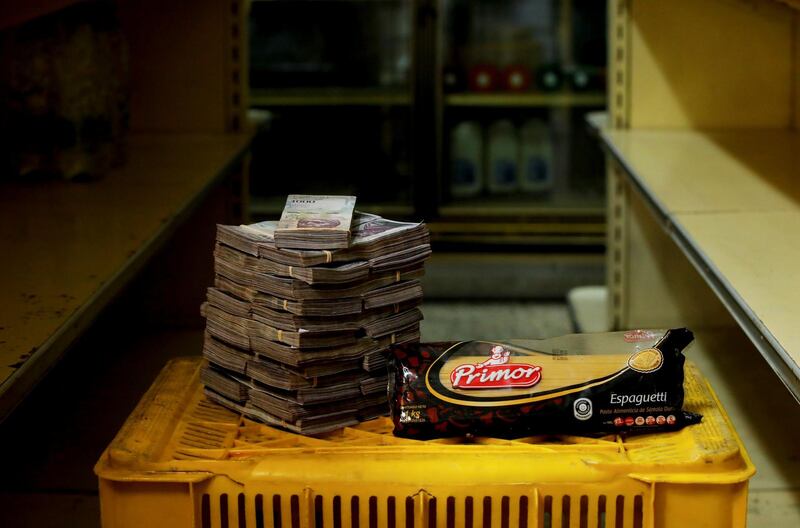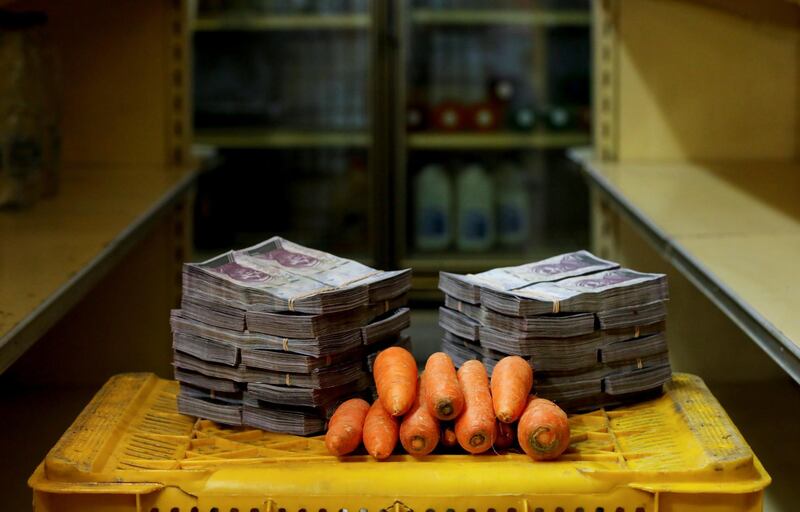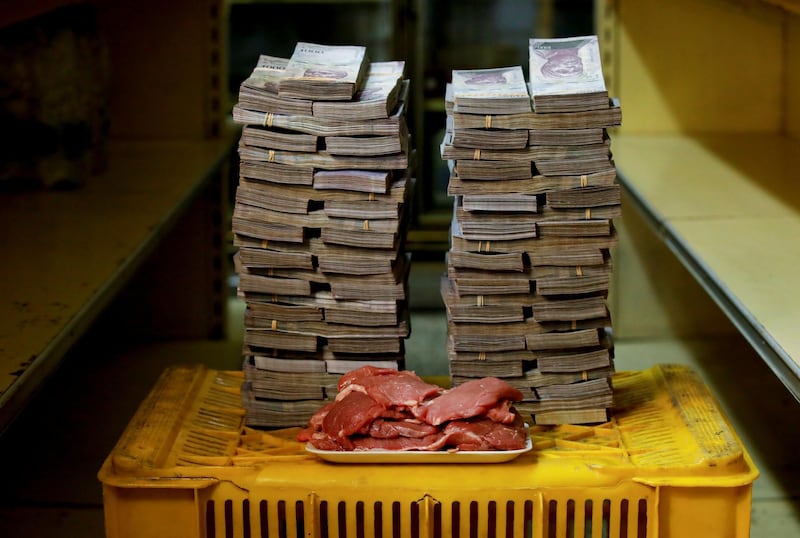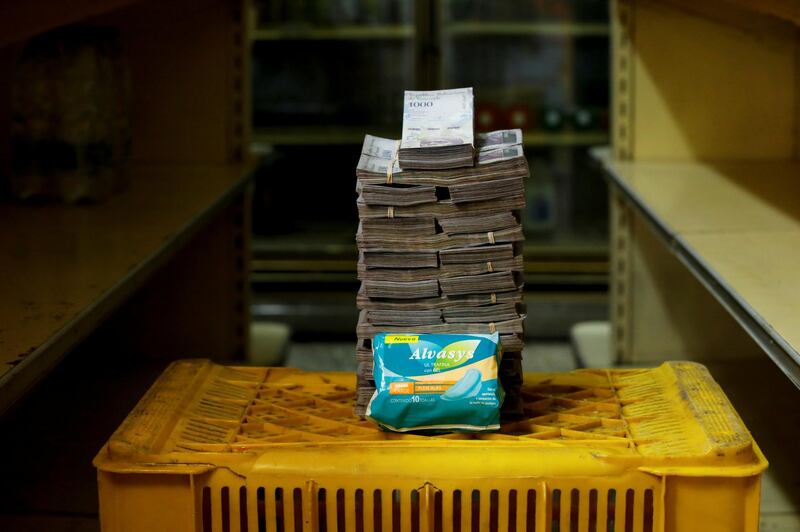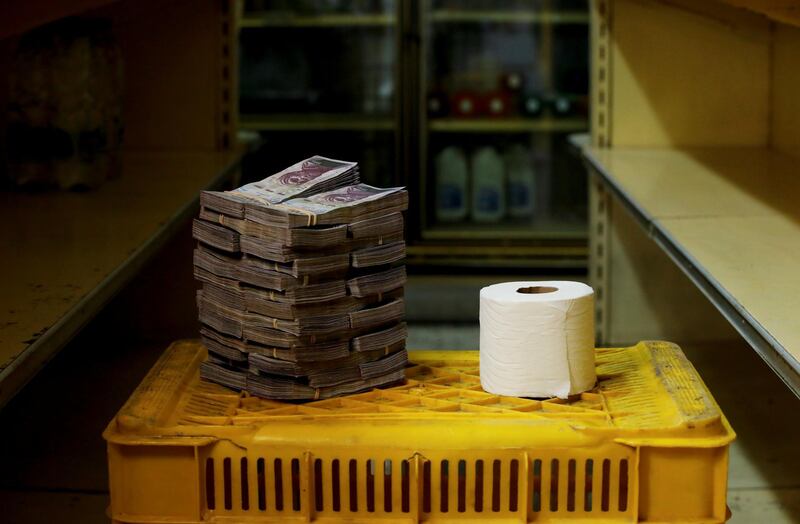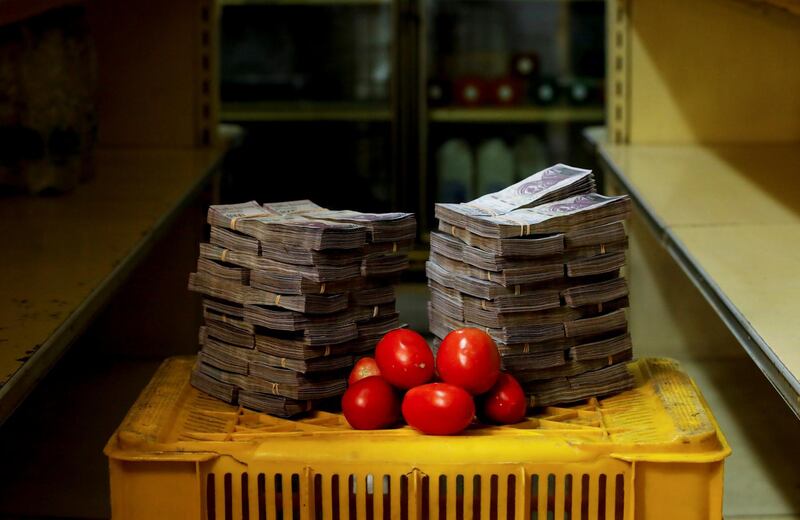Venezuela devalued its currency by about 95 per cent ahead of the roll-out of a new bolivar on Monday, while raising its minimum wage as part of a 90-day economic recovery plan that seeks to loosen the grip of hyperinflation on the country.
The new currency will be called the sovereign bolivar and will be based on the country’s Petro cryptocurrency, now valued around $60 or 3,600 sovereign bolivars. The minimum wage will be set at 1,800 sovereign bolivars, President Nicolas Maduro said in a speech broadcast on state television. The Petro, which will fluctuate, will be used to set prices for goods.
Tying the new currency to the Petro value effectively amounts to a 95 per cent devaluation on the past week’s central bank foreign exchange auction results, according to Bloomberg.
Mr Maduro’s historic devaluation comes as Venezuela sinks into a severe economic depression and wrestles with hyperinflation that the International Monetary Fund estimates will reach 1 million per cent by the end of this year.
“You won’t find the IMF’s claws or ill-gotten prescriptions here,” Mr Maduro said, surrounded by his economic team at the presidential palace. “No experts were involved who do not feel the clamour of the people.”
Mr Maduro failed to offer more details on a petrol price system, saying that he wants a plan that includes direct subsidies to registered public transport operators and individual vehicle owners. Those not registered won’t receive a subsidy and will have to pay international prices. He extended a census allowing drivers to register for the subsidy for 10 days until August 30.
Venezuela would save $10 billion through the new fuel price system, Mr Maduro said.
Henkel Garcia, the director of the Caracas consultancy Econometrica, saw the announcements as raising more questions than answers and likely to cause confusion among companies and consumers.
“This series of measures is a mix of incoherent and contradictory ideas,” he said. “It is a worrying contraption that generates a lot of uncertainty about how it will be executed.”
To rid the country of the black-market dollar, Mr Maduro said the central bank will increase the frequency of weekly foreign exchange auctions to three and eventually five.
"I want the country to recover and I have the formula. Trust me," Mr Maduro said on state television.
_______________
View:
Hyperinflation in Venezuela - in pictures
Read more:
Venezuela’s Maduro replaces VP while promising ‘new start’
_______________
But economists expressed doubts that Venezuela’s cash-strapped government, which faces US sanctions and has defaulted on its bondholders, would succeed, according to Reuters.
Venezuelans will see their meagre salaries further eroded and companies will struggle with major increases to both taxes and the minimum wage, they said.
“Amid this aggressive devaluation and monetary expansions due to salaries and bonuses, we are expecting a much more aggressive stage of hyperinflation. All the more so in a context where the elimination of excessive money printing is not credible. The worst of all worlds,” said Venezuelan economist Asdrubal Oliveros of consultancy Ecoanalitica.
"They've dollarised our prices. I am petrolising salaries and petrolising prices," Mr Maduro said. "We are going to convert the petro into the reference that pegs the entire economy's movements."
He added that the minimum wage would amount to "half a petro", baffling some Venezuelans and sparking the Twitter hashtag #BlackFriday.
